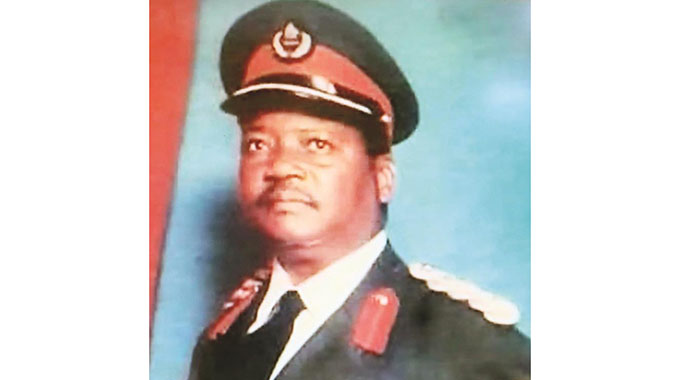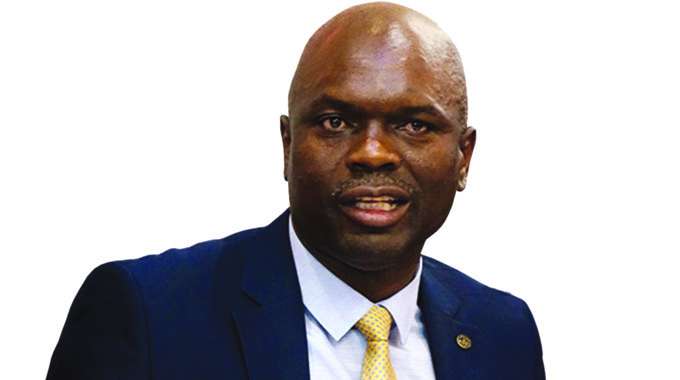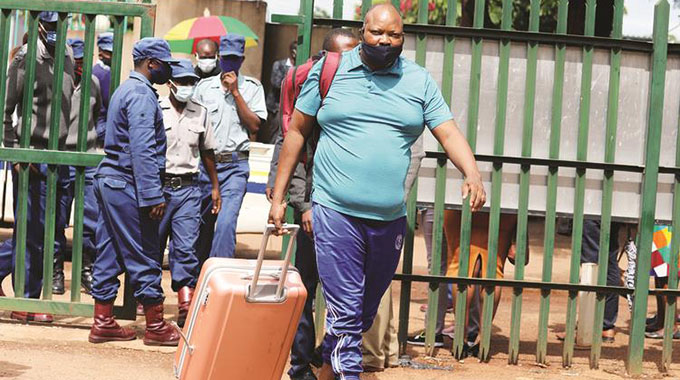Farewell Brig-General Moyo

Cde Joseph Mbedzi
Correspondent
My first military training was in Zambia at Mwembeshi Training Camp and we were transferred to Mgagao which was a Zanla training camp.
After the shoot-out at Mgagao, the OAU decided to transfer us to Morogoro where I first met Rodwell Nyika (Brig-General Collin Moyo Retired). He was a Zipra instructor at Morogoro Training Camp. He was one of my trainers in 1976. I think our group was the last group to receive military training at Morogoro.
From there the instructors were taken to Zambia and I was deployed to the war front in Feira where I operated for some time. Rodwell was also later deployed in Feira as the regional commander, replacing David Chibhoyi who is now late. Feira we are referring to places from Kanyemba up to Chirundu and to Mana Pools.
After our deployment, in March 1978, we were attacked by the Rhodesians. During that battle, Rodwell was our commander. We spent about a week together and we became very close.
We were almost captured during that bombardment because we were staying together in one of the tents. We managed to escape together during the night.
The attack started in the morning, I think around 9am. It was heavy bombardment. We lost about 28 Zipra comrades and I remember very well we lost about 24 Zambian soldiers in that battle.
A week after this battle, we decided to cross into Rhodesia.
We crossed together with Rodwell and we went as far as Chundu, Kazangarare and Mhangura (in Hurungwe in now Mashonaland West). After a month at the war front, we returned to Zambia. We were then taken to Luangwa and we established Nkume Base. Again we were also attacked by the Rhodesian soldiers. All this time we were still together with Rodwell.
From there we negotiated with the Zambians so that we could cross into Rhodesia along the Feira area which is next to Kanyemba (then in Guruve district but now Mbire district). We were assisted by a Zambian officer called Ntala.
He understood our challenges and helped us a lot in our operations.
When I was shot in the arm, I was still together with Rodwell. By this time, the enemy had planted a lot of enemy insurgents and I was shot during one of the attacks.
At one time, we managed to disarm one of the sell-outs together with Rodwell. We operated for a while together but when we got to Shamrock Mine, we decided to go separate ways. Rodwell assigned me to go to Guruve and he went to Hurungwe.
After two weeks, we met again in Zambia. Rodwell then said to me, “I think we need to target the big targets in Rhodesia.” We decided that Rodwell was going to attack Mana Pools and I was supposed to attack Mushumbi Pools. Mushumbi had been attacked earlier on by some Zipra comrades but we really wanted to bring everything there to the ground.
During the attack at Mana Pools, Rodwell got injured and he was taken to Zambia then to Soviet Union for treatment. He was hit on the palm and lost two fingers. I was later told by our chief of operations, Jevan Maseko that Rodwell had been injured. I later met Rodwell in 1980 at Papa Assemble Point, which was about 40km from Chirundu.
He was now the commander of the reserve force, then he went for integration. I decided not to join the army.
We didn’t see each other for a long time. In 1993 I met Rodwell at KGV1 (now Josiah Magama Tongogara Barracks) when we were pushing for the rights of the war veterans. We later met again in 1997 when he was deployed to the War Veterans Department as one of the directors. Until his death he was still under the Ministry of Defence.
From all the time that I operated with him, I have known Rodwell as someone who was determined to free his country. His command was simple and straight forward.
He was not cruel but had his way of encouraging his comrades to have a fighting spirit. Rodwell turned cowards into freedom fighters. I saw him at work during the battle at Feira. It wasn’t easy but Rodwell instilled a strong fighting spirit in his troops.
As a commander, he was more of a regular fighter than a guerilla. He had received training in regular warfare but the situation on the ground demanded guerilla warfare. Rodwell quickly adjusted and fought the war with unmatched distinction.
Together we organised proper structures command structures in Zipra and we mobilised small operating units into bigger units. We were now operating in big numbers. In the beginning, the Zipra Section would have seven comrades, but we changed this to a Platoon that had 21 comrades plus the command structure we would be 24.
Rodwell contributed immensely to the liberation of this country.
He transformed many civilians into real soldiers. That wasn’t an easy task. After training these civilians into soldiers, Rodwell then came to the front with these same soldiers to fight with them. Very few instructors did this.
You know the training was very tough and so as instructors they would create many enemies among the fighters. Then to be deployed to go and command these same people was quite risky, but Rodwell managed to fight side by side with those he had trained.
During the time when there were many enemy insurgencies, many were anti-command but Rodwell managed to neutralise all that. I was with Rodwell during 95 percent of the battles that he was involved in. He was a fighter per excellence. Even after being attacked, he would remain determined to fight the war.
He was never demoralised.
Many times after the attacks, I would go with Rodwell to bury our dead comrades. This was one of the most risky, painful and touching moments, but Rodwell would ensure that after the burial, all the surviving comrades remained determined to fight the war.
He was a good motivator.
Rodwell didn’t change even after the war. He remained a militant person and some people were not comfortable dealing with him because of that. He was determined to correct the situation. As you may know, the military is a highly organised society. Their system is highly organised and Rodwell was also highly organised along those lines.
When I heard that Rodwell had passed on, I was really, really hurt, but this is something we can’t reverse. I lost a very good friend and comrade. When he was involved in an accident, he phoned me from my farm and I went to see him at St Annes Hospital. When he retired from the army, I told him that he should join the party (ZANU-PF) under the War Veterans League in Mashonaland West. I invited him and he agreed. There was a lot of trust between us. In our province the War Veterans League is being led by Happison Muchechetere.
This is a great loss to the country and it’s not easy to replace a person like Rodwell. We will continue to defend what Rodwell stood for. Go well my commander! Go well my friend! Go well my comrade!
The narration was recorded by former Sunday Mail Deputy Editor Munyaradzi Huni.









Comments